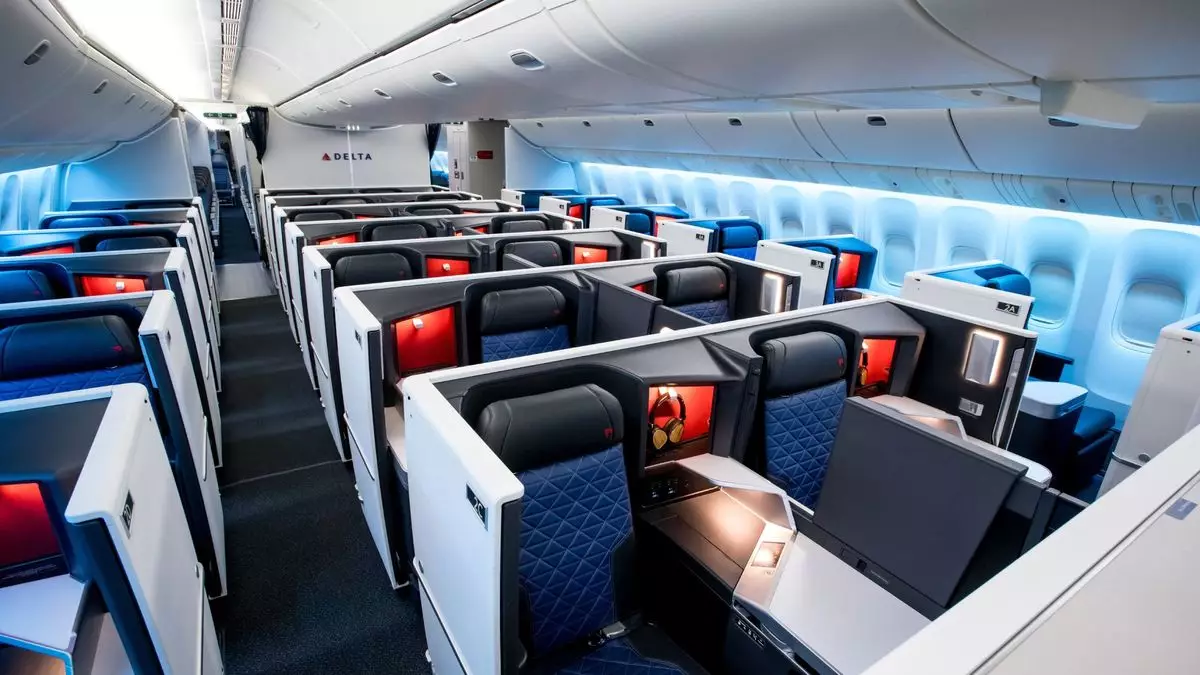Delta Airlines is embarking on a strategic overhaul of its premium cabin services, signaling a clear shift toward tailored, customer-centric options. This move reflects a recognition that modern travelers seek flexibility, transparency, and personalized experiences rather than a one-size-fits-all approach. By segmenting their fare options—especially within the premium cabins—Delta aims to empower passengers with choices that best suit their needs and budgets. This approach is not just about adding a menu of options—it’s about transforming how premium travel is perceived and experienced.
The airline’s leadership emphasizes that this is a mindset shift rooted in understanding consumer preferences. The introduction of differentiated fare classes within domestic first class and international business reflects an effort to provide clarity and value. For example, Delta’s current two-tier system—refundable and nonrefundable fares—gives travelers a clearer sense of what they are purchasing. Their upcoming segmentation blueprint signals a broader vision: premium cabins should cater to various travel styles, whether travelers prioritize flexibility, cost-savings, or enhanced services.
From Basic to Luxury: The Future of Cabin Choices
In recent months, Delta has revamped its main cabin offerings, rebranding products to clearly delineate their unique benefits. The move to Main Basic, Main Classic, and Main Extra is a strategic effort to communicate value propositions more effectively. These distinctions—seat selection, changeability, refund options, and boarding privileges—serve as a template for premium cabins. Essentially, Delta plans to adopt a similar layered approach for its more exclusive services, making it easier for consumers to navigate complex fare structures.
This level of transparency is likely to resonate with a customer base increasingly wary of hidden fees and confusing offerings. By clearly articulating the benefits at each price point, Delta enhances customer trust and positions itself as a forward-thinking airline willing to innovate for user satisfaction, rather than merely maximizing revenue.
Challenging Convention in the Premium Air Travel Market
Delta’s willingness to experiment with unbundling services—such as domestic first class and international business—demonstrates a bold move that could redefine premium travel standards. While the airline is still surveying customer preferences, the potential decoupling of traditional bundles suggests an industry that is evolving beyond static packages. This shift aligns with broader trends in e-commerce and digital services, where choice and flexibility are paramount.
Additionally, Delta’s strategy implies a desire to create a more nuanced mid-tier for premium travelers—think of a range from basic comfort to luxuriously tailored experiences. It’s a deliberate attempt to address diverse client segments, from cost-conscious but aspirational travelers to high-end clientele craving bespoke service. Such differentiation not only enhances customer satisfaction but could also reshape loyalty programs, encouraging repeat business from a wider demographic.
The Bottom Line: A Calculated Gamble for Market Leadership
Delta’s recent financial performance underscores that this isn’t just a philosophical endeavor but a calculated business move. The airline reported impressive second-quarter earnings amid a recovering travel landscape, indicating that innovation in customer experience can translate into solid financial results. With demand stabilizing after a turbulent winter, Delta is positioning itself as a leader capable of balancing profitability with customer-centric innovation.
Ultimately, the airline’s push toward segmentation in its cabin offerings signals confidence. It’s a recognition that in an ultra-competitive industry, differentiation through tailored services and transparent pricing can be a key driver of loyalty and revenue. As Delta continues to evolve, the travel landscape itself may be on the cusp of a more flexible, personalized future—one where premium travelers aren’t just passive recipients of a fixed product but active participants in crafting their journey.


Leave a Reply